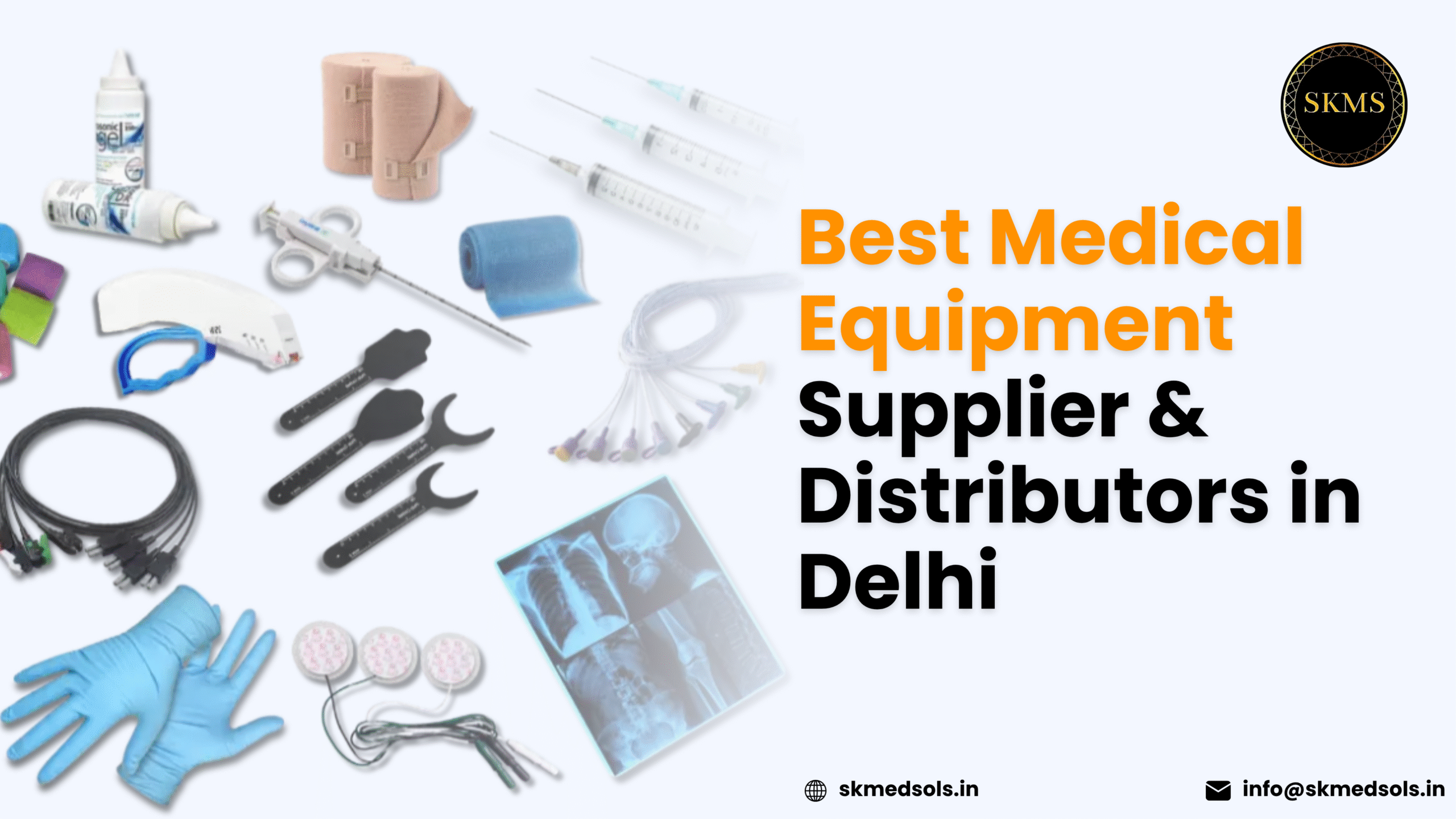In today’s fast-evolving healthcare industry, digital transformation has become a vital part of success for medical equipment suppliers. With hospitals, laboratories, and clinics increasingly depending on technology-driven solutions, suppliers must adapt to keep pace with modern healthcare needs. The demand for accuracy, real-time data, and efficient service delivery has made digital tools indispensable for managing the supply of critical medical devices and equipment.
Digital transformation is not limited to adopting software—it involves redesigning the entire business approach using technology to enhance efficiency, transparency, and collaboration. It ensures that suppliers can meet the high expectations of healthcare providers while maintaining cost efficiency and operational excellence.
The Growing Importance of Digital Transformation
Medical equipment suppliers play a crucial role in maintaining the global healthcare infrastructure. Their work directly impacts patient safety, treatment timelines, and hospital operations. Traditionally, manual systems led to errors, delayed deliveries, and poor communication between suppliers and healthcare institutions. Digital transformation addresses these challenges through automation, online communication, and data-driven decision-making.
Modern digital tools integrate procurement, logistics, and customer management, providing real-time visibility across the entire supply chain. As healthcare becomes more data-centric, suppliers must use digital systems to remain reliable and responsive partners.
Streamlining Operations Through Automation
Automation is at the heart of digital transformation. It helps medical suppliers optimize their internal processes, from inventory management to order processing. By using ERP (Enterprise Resource Planning) systems, suppliers can synchronize purchasing, logistics, and accounting in one platform. Similarly, CRM (Customer Relationship Management) tools allow seamless communication with hospitals and clinics, reducing delays and ensuring accurate order fulfillment.
For a medical equipment supplier in Delhi, automation translates to faster delivery, better tracking, and fewer human errors. It improves supply chain visibility and makes operations more cost-effective, ensuring hospitals get what they need when they need it most.
Enhancing Data Management and Accuracy
Digital transformation allows suppliers to collect, analyze, and store data securely. This data is vital for forecasting demand, managing inventory, and improving overall performance. Cloud-based solutions ensure that critical information is easily accessible while maintaining security and compliance with healthcare regulations.
Data-driven insights help suppliers identify trends, plan better, and minimize waste. They can predict which equipment types will be in demand during specific seasons or emergencies, ensuring uninterrupted supply. Secure databases and encryption protect sensitive information, reinforcing trust among clients.
Improving Customer Experience
Hospitals and clinics expect efficiency, transparency, and reliability. Through digital tools like online portals and tracking systems, suppliers can offer instant updates, online quotations, and digital billing. This level of convenience builds stronger relationships with clients and enhances satisfaction.
Digital communication also enables better after-sales support. Clients can easily contact suppliers for maintenance requests, warranty claims, or product details. The result is a smoother, more transparent partnership that benefits both parties.
Expanding Reach with Digital Connectivity
Digital platforms allow suppliers to connect beyond their local markets. Through e-commerce websites, social media marketing, and digital catalogs, suppliers can showcase their products to a global audience. A medical equipment supplier in Delhi can now expand operations across India or even collaborate with international buyers.
Technology also facilitates better collaboration with manufacturers and distributors. Through integrated systems, suppliers can track shipments, manage import/export documents, and maintain a consistent product flow without logistical barriers.
Boosting Sustainability and Reducing Costs
Digital transformation promotes environmentally sustainable practices. Paperless documentation, cloud storage, and automated workflows reduce waste and energy consumption. Predictive analytics also minimize overproduction and resource misuse, making operations leaner and greener.
Cost savings naturally follow these improvements. Automated billing, optimized routes, and efficient communication help cut unnecessary expenses, allowing suppliers to reinvest in innovation and better services.
Future Trends in Digital Medical Supply
The future of the medical supply industry will revolve around advanced technologies such as Artificial Intelligence (AI), the Internet of Things (IoT), and blockchain. AI helps in forecasting demand and managing predictive maintenance. IoT allows real-time tracking of equipment performance and condition, while blockchain ensures secure and transparent transactions.
Suppliers that embrace these innovations will enjoy greater accuracy, faster operations, and improved security. As healthcare continues to evolve, digital transformation will remain the foundation for progress and global competitiveness.
FAQs
Q1. What is digital transformation for medical equipment suppliers?
It’s the integration of technology such as automation, cloud systems, and data analytics to streamline operations, improve communication, and enhance service delivery.
Q2. Why is digitalization important in the medical supply industry?
It ensures timely delivery, accurate documentation, and transparent coordination between suppliers and healthcare institutions.
Q3. How does it help a medical equipment supplier in Delhi?
It helps improve efficiency, reduce costs, and expand market reach while offering better service to hospitals and clinics.
Q4. Is digital transformation difficult for small suppliers?
No, many affordable digital tools are available to help small suppliers automate processes and improve productivity.
Q5. How does digital transformation improve data security?
Digital systems use encryption, secure servers, and backup protocols to protect sensitive healthcare and business data from unauthorized access.
Conclusion
Digital transformation is no longer optional—it is essential for every medical equipment supplier aiming to remain relevant in a competitive, tech-driven world. It improves operational efficiency, strengthens client relationships, and ensures transparency across the supply chain.
For a medical equipment supplier in Delhi, adopting digital systems means greater reliability, faster service, and stronger partnerships with healthcare providers. The future belongs to those who evolve with technology and use it to deliver better, smarter, and more sustainable medical solutions.



